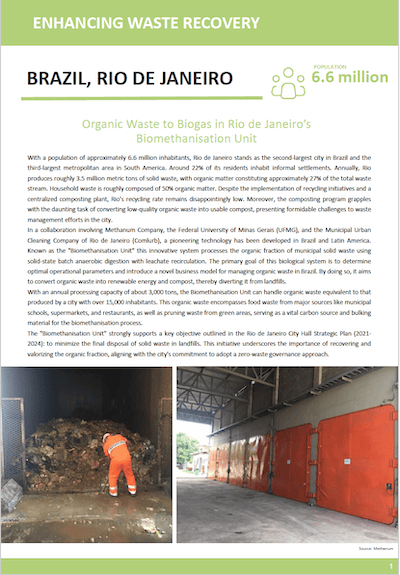
BRAZIL, RIO DE JANEIRO
With a population of approximately 6.6 million inhabitants, Rio de Janeiro stands as the second-largest city in Brazil and the third-largest metropolitan area in South America. Around 22% of its residents inhabit informal settlements. Annually, Rio produces roughly 3.5 million metric tons of solid waste, with organic matter constituting approximately 27% of the total waste stream. Household waste is roughly composed of 50% organic matter. Despite the implementation of recycling initiatives and a centralized composting plant, Rio's recycling rate remains disappointingly low. Moreover, the composting program grapples with the daunting task of converting low-quality organic waste into usable compost, presenting formidable challenges to waste management efforts in the city.
